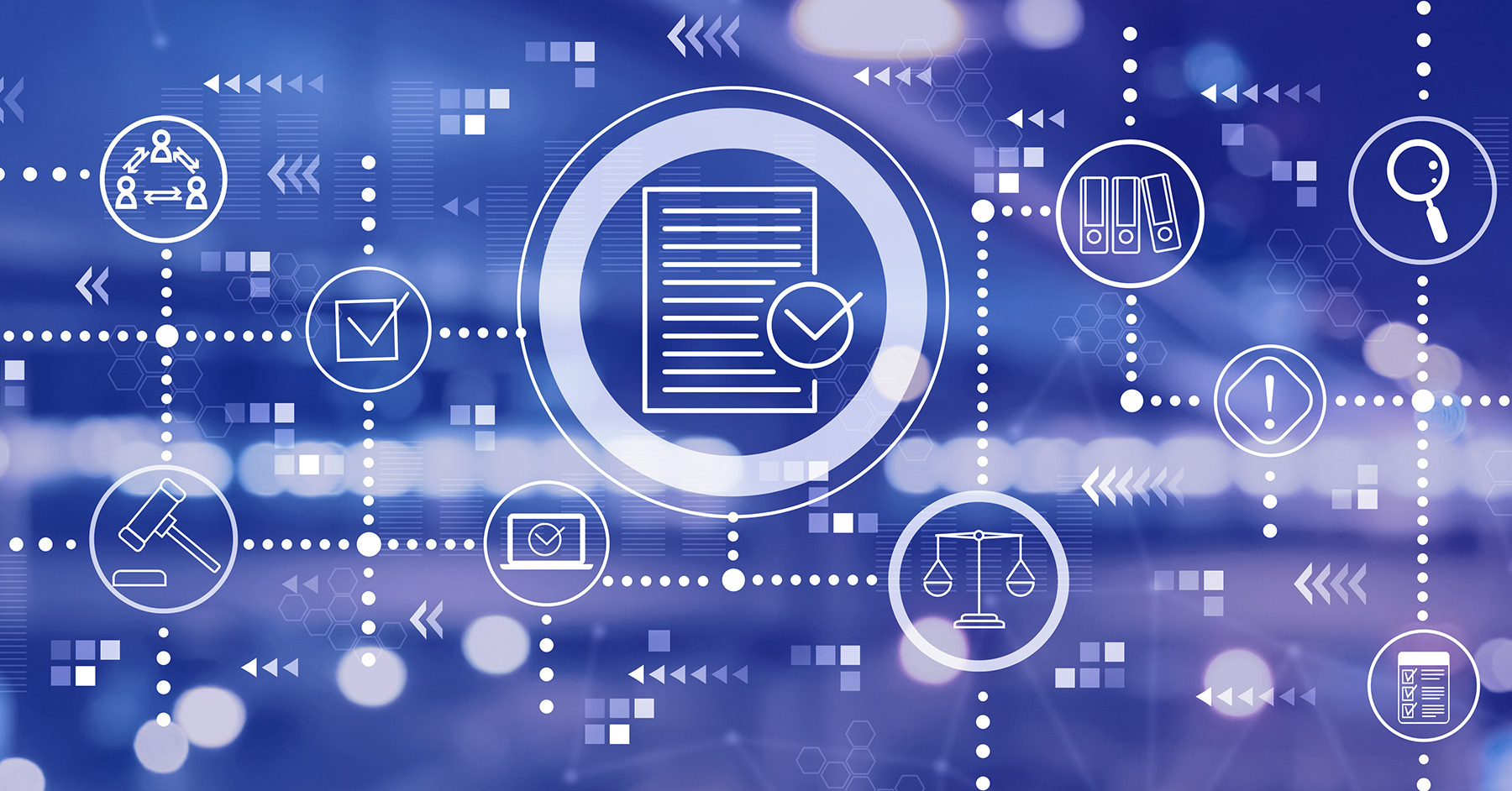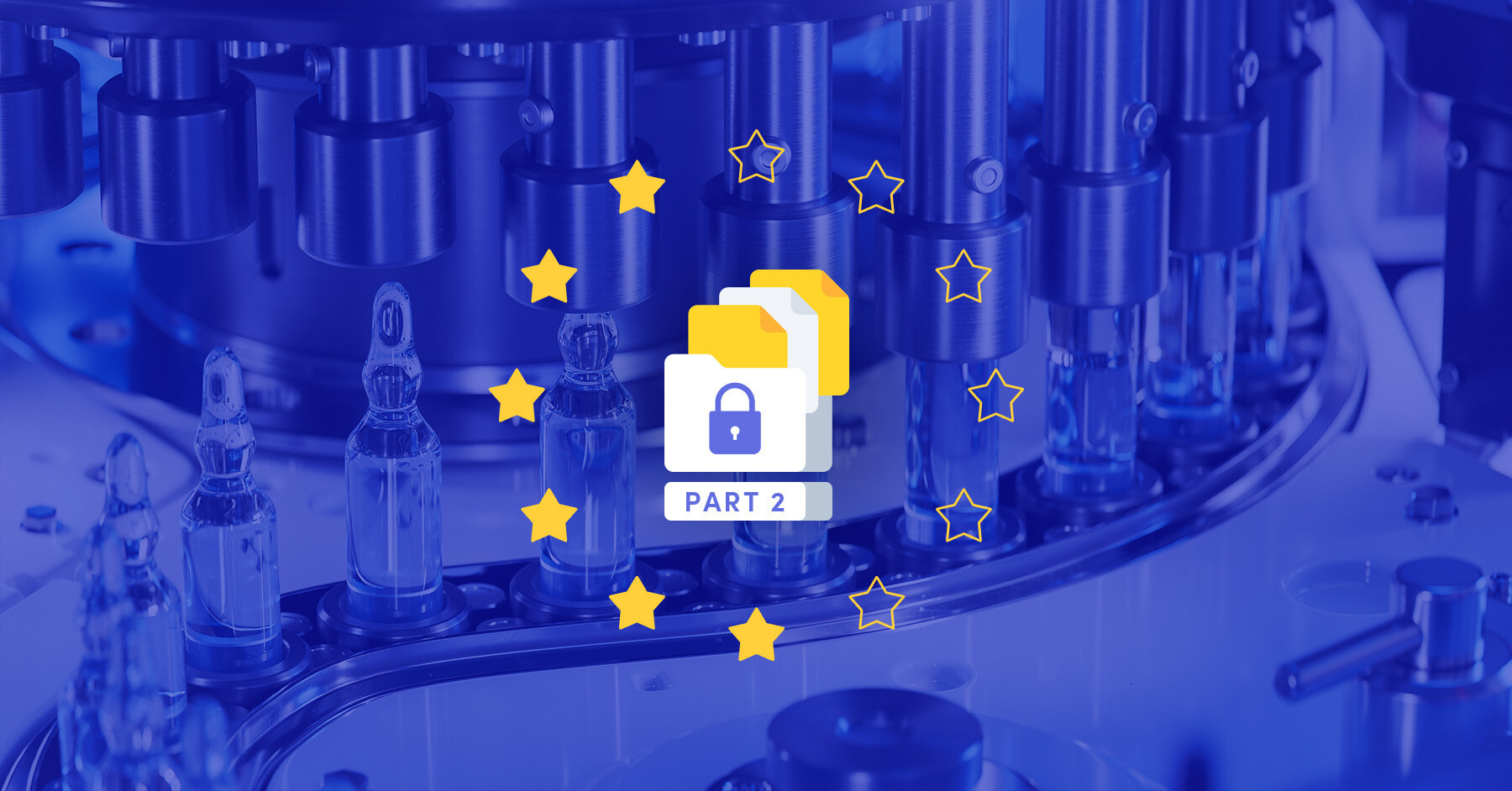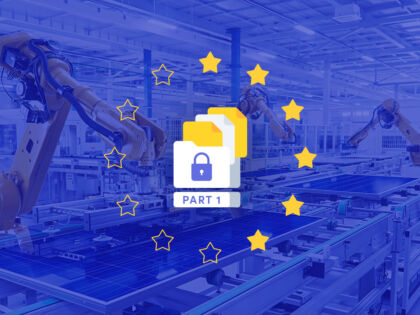In the first part we learned basics about the most important and relevant data and digital regulations, and their significance and implications for manufacturing companies. In this second part we are going to learn about the relevance of the digital technologies in the manufacturing companies, best practices and how to manage data in digital technologies in the future, and in compliance with the EU regulations.
Navigating the Intersection of Manufacturing and Digital Technologies
The intersection of manufacturing and digital technologies is a frontier of both opportunities and challenges, intensified by the regulatory landscape shaped by the EU. The General Data Protection Regulation (GDPR) requires manufacturers to carefully navigate the integration of AI, IoT, and other digital innovations. Machine learning algorithms, employed for predictive maintenance or quality control, must adhere to GDPR principles, ensuring data transparency and user rights.
Simultaneously, the ePrivacy Directive guides how manufacturers leverage digital communication technologies. Incorporating IoT sensors into supply chain management or utilizing AI-driven chatbots for customer interaction necessitates compliance with communication privacy standards. Balancing innovation with data protection becomes a daily consideration in the manufacturing realm.
The Directive on Security of Network and Information Systems (NIS Directive) is pivotal in this digital intersection, requiring robust cybersecurity measures as industries embrace IoT for real-time monitoring or blockchain for secure transactions. Manufacturers adopting these technologies must integrate NIS Directive principles into their daily operations to ensure the resilience of digital networks and information systems.
As manufacturing becomes increasingly intertwined with online platforms, the Digital Services Act (DSA) and Digital Markets Act (DMA) dictate how companies engage in digital services. Daily operations now involve navigating the regulations governing e-commerce, platform liability, and fair competition, influencing strategic decisions related to digital market presence and customer interaction.
In the realm of artificial intelligence, the AI Act (Artificial Intelligence Act) emerges as a guiding force. Manufacturers embracing AI for process optimization or incorporating augmented reality (AR) for training programs must align these technologies with the ethical considerations laid out in the AI Act. This extends beyond legal compliance, shaping daily decisions on the use and deployment of advanced technologies.
In essence, the daily navigation of manufacturing and digital technologies requires a delicate dance between innovation and regulatory compliance. Join us as we delve further into the challenges and opportunities arising at this intersection and explore strategies for manufacturing companies to thrive in this digital era.

Compliance Strategies for Digital Regulations
In the dynamic landscape shaped by the Digital Services Act (DSA), Digital Markets Act (DMA), and AI Act (Artificial Intelligence Act), manufacturing companies must adopt strategic compliance measures to navigate these nuanced regulations.
The DSA introduces a new paradigm for digital services, demanding transparency and accountability from online platforms. Manufacturing entities engaged in digital services must craft policies that align with the DSA, ensuring clear communication, fair competition, and safeguarding user rights. Regular monitoring of content and proactive reporting mechanisms are key elements in adhering to the DSA, fostering an environment of trust and integrity in the digital sphere.
Simultaneously, the DMA targets the market power of large online platforms, ensuring fair competition and protecting users from potential abuses. Manufacturing companies operating within digital markets must assess their digital practices to guarantee compliance with DMA rules. This involves scrutinizing business practices on online platforms, addressing any potential anticompetitive behavior, and adapting strategies to meet the DMA's stringent criteria.
With the AI Act, a comprehensive regulatory framework is established for the development and use of artificial intelligence. For manufacturing companies leveraging AI technologies, conducting impact assessments for high-risk AI applications becomes crucial. Compliance involves transparency in AI decision-making processes, human oversight, and adherence to ethical guidelines. Integrating these considerations into AI development not only ensures compliance with the AI Act but also contributes to the responsible and ethical deployment of AI in manufacturing operations.
In essence, navigating the uncharted territories of the DSA, DMA, and AI Act requires manufacturing companies to integrate these regulations into their digital strategies. Join us as we explore practical compliance strategies tailored for these acts, unraveling the complexities and providing a roadmap for manufacturing companies to thrive in the evolving digital regulatory landscape.
Future-Proofing Your Manufacturing Business
As EU data and digital regulations continue to evolve, future-proofing your manufacturing business becomes paramount. Embrace a proactive approach by staying abreast of regulatory updates and anticipating emerging legislation. Cultivate a culture of adaptability within your organization, fostering a mindset that views compliance not as a burden but as a catalyst for innovation and trust. Invest in ongoing training programs to equip your team with the latest knowledge on digital regulations and technologies. By strategically aligning your manufacturing processes with the evolving regulatory landscape, you not only ensure compliance but also position your business at the forefront of technological advancements in the digital era.
Conclusion
In conclusion, the intricate dance between manufacturing and EU data and digital regulations requires a harmonious blend of compliance, innovation, and ethical considerations. As we've navigated the regulatory landscape, it's clear that these regulations transcend legal obligations, shaping the very fabric of manufacturing operations. Embracing this transformative journey positions companies not just as compliant entities but as pioneers in ethical and resilient business practices, essential for success in the digital age.
We invite you to embark on this transformative journey with us. Share your thoughts on how EU data and digital regulations impact your manufacturing business. Questions? Let's explore them together. Stay informed, adapt proactively, and thrive in the digital landscape. For deeper insights or personalized guidance, reach out to us. Together, let's shape a future where compliance is not just a requirement but a catalyst for innovation and sustainable growth.








